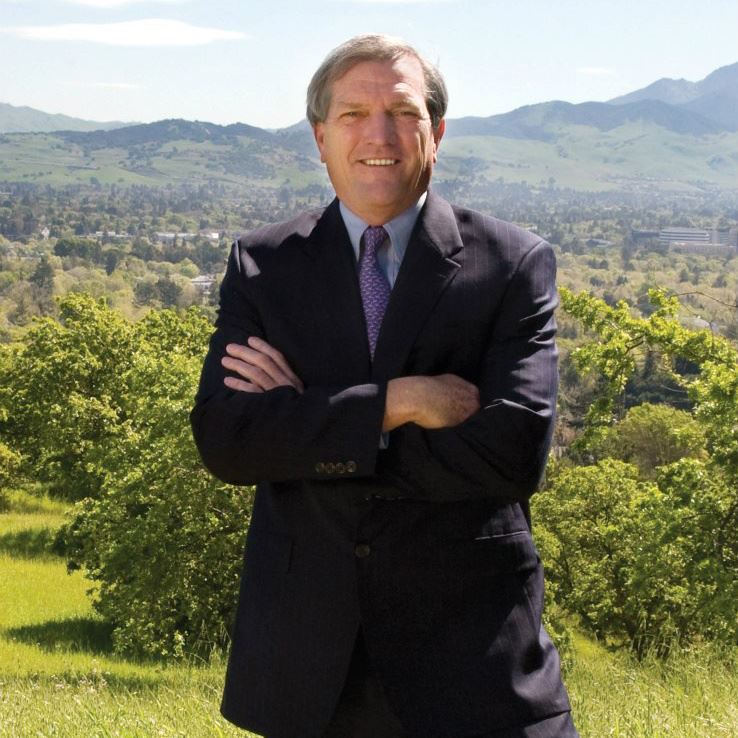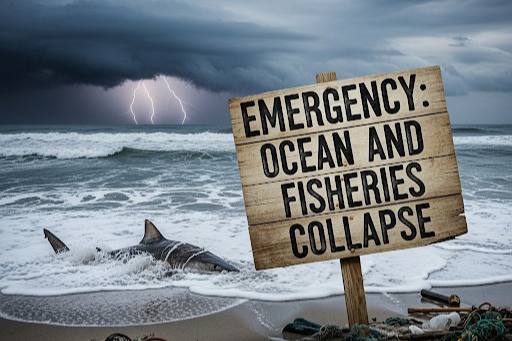I recently spoke with U.S. Representative Mark DeSaulnier (D–CA), a former Republican turned Democrat representing California’s 10th congressional district just east of San Francisco Bay, about the climate emergency and the need to push beyond partisan acrimony to restore healthy oceans with innovative solutions.
DeSaulnier began by summarizing his background in working on climate. “In 1994 I was a Republican and was appointed by Pete Wilson, a Republican governor of California, to the California Air Resources Board — CARB,” he explained. “I spent a decade on CARB [serving] three governors, Wilson, Gray Davis (D), and Arnold ScImahwarzenegger (R). So, when I got elected to the legislature, I had a reputation [for] being knowledgeable about air quality.”
DeSaulnier went on to serve as chairman of CARB at the request of governors Davis and Schwarzenegger, and met with the current chair and executive director last spring. “We talked about how we can protect the California waiver from the Trump administration and…continue to do all the wonderful things we’re doing,” he said. “The US Clean Air Act allows California, based on public health criteria, to go beyond what the US EPA [Environmental Protection Agency] may require. And that’s the California waiver.”
The area DeSaulnier represents — San Francisco’s East Bay — houses five of the 13 refineries still active in the state of California, producing roughly 25% of the CARB-certified fuel and 50% of the diesel fuel in the state. In addition to the Bay Area, Long Beach, Los Angeles, and Puget Sound have the highest concentration of refineries. “The crude comes from the North Slope of Alaska and from the Pacific Rim, and… goes out to the rest of the country,” DeSaulnier explains. “So what I was actually talking to the CARB staff about was their modeling. At CARB we always said we’re agnostic about how we get to the totals –- we just need the emissions reduction. So we need to measure the emissions and model them accurately. Carbon being more ubiquitous is harder than traditional pollutants, but what we were talking about… was how [to] create a model between the workforce and the targets we have to meet, and then be agnostic.”

Congressman Mark DeSaulnier
When asked for his thoughts on ocean restoration strategies that hold great potential for both removing excess carbon from the atmosphere and boosting fisheries, DeSaulnier said, “if we discover that carbon capture naturally works, then [we should] do the analysis and, as you say, get the capture.”
Turning Around the Titanic
“We’ve got generations of work to do to transition our energy sources on this planet away from fossil fuel and greenhouse gas-emitting to more efficient renewables,” DeSaulnier pointed out. He also underscored the magnitude of figuring out how to transition an economy the size of California’s, which is the largest in the US and the fifth largest in the world, to solely rely on renewables.
The congressman agreed that “if you just shut [down] all these refineries and the fossil fuel industry today, yes, you would still have these other challenges,” including the lethal one trillion tons of extra CO2 humans have put into the atmosphere, which are estimated to take a thousand years to go away without any intervention. But he raised the question of how to model the risks and benefits to ensure that California is “protecting the environment long-term and not creating other [harmful] consequences” in the process.
I pointed out that the best model I have seen is the extremely safe 100 Villages action plan, which envisions one hundred fishing villages (or cities) around the world sending boats out to their ocean ecosystems and replacing the tiny amounts of missing nutrients that plankton need in order to flourish. Restoring plankton — the ocean’s equivalent to Amazon rain forests — is key to removing CO2 from the atmosphere and reducing ocean acidification, and has the potential to bring California’s fisheries back from disaster to a position of world leadership. The cost is low and could possibly be funded by blue carbon credits.
A Bipartisan Opportunity
I asked DeSaulnier whether he thought it would be possible to find common ground in Congress around legislation similar to the bill (HR 7797) sponsored by Representative Buddy Carter (R–GA) the last session, which proposed establishing a pilot program on ocean restoration research and development.
Carter complained that he was unable to find a Democratic cosponsor, saying that there were at least five who really liked the idea and were quite ready to back it, but were told by leadership not to for partisan reasons.
“I’m surprised to hear about Democratic members not wanting to partner because I haven’t experienced that,” DeSaulnier said. “I’m thinking of a very good friend of mine I’ve known for a long time, Jared Huffman. He’s a ranking Democrat on the Resource Committee [who] represents [the state] from the Golden Gate Bridge to the Oregon border, the California coastline. And he’s a former NRDC [Natural Resources Defense Council] attorney who specialized in oceans and water, so he would have the seniority, jurisdiction, and the background, right? The natural person.” DeSaulnier promised to talk to him about Carter’s bill, saying he “would be very surprised” if his friend isn’t interested in signing on, adding that the way “you get bipartisanship is just [by building] relationships and working with people.”
Declare an Ocean and Fisheries Emergency
As I reminded the congressman that the flag of LA County has a tuna on it because California was the tuna capital of the world as recently as 1950, I mentioned a new tactic to try to get bipartisan progress that is championed by the president of OPR ALASKA, Russ George: Declare an ocean and fisheries emergency based on the collapse of California’s fisheries. By focusing on the fact that the acidification of the oceans due to rising levels of atmospheric carbon dioxide is a leading cause of the demise of fish, Congress could generate the resources needed to fund an action plan for ocean restoration to bring fish back while removing significant amounts of ruinous CO2.
“I’d have to look into it,” DeSaulnier said. “I am the ranking Democrat on the ethics committee, and we have rules about how we handle state and local policy. It’s not like we can’t do this, but we have to comply with the political side as well as the taxpayer-funded part of it. And my recollection of FEMA [the Federal Emergency Management Agency] laws is the governor [needs to ask] the president to declare [an emergency]. And I’m not sure [if] Congress would go around that, other than legislatively confirming it budgetarily.
“The governor can ask for a declaration from the president in an emergency,” DeSaulnier added. “But this president is unhinged when it comes to fossil fuels, climate change, and science.”
I noted that in this case there is a great advantage to focusing on the economic reality for the fishing industry instead of mentioning climate so that the president and other climate deniers might consider it.
“That is possible,” DeSaulnier replied. “What I always try to do on the climate change issue is refer to an existing model and say something like, ‘the Chinese are approving this as a better economic model.’ And in your case of letting nature heal itself, of allowing that to happen, this is the most efficient from a business model standpoint, not to mention all the other benefits.”
DeSaulnier also mused about a potential legal path. “[Another option] is the California waiver I mentioned earlier, which has never been denied since Richard Nixon signed the [Clean Air Act in 1970]. This allows many good actions but this president wants to ignore it. The courts have always upheld it, so when California goes beyond the federal standards [for air quality] other states can join California. In the Clean Air Act, there is an allowance for public rights of action, which are lawsuits. So, if you have standing, California can sue. California can say, well, you didn’t provide the needed requirement under the US Clean Air Act. California has never failed to be able to defend that” because the state carefully monitors emissions and air quality.
“If you were to use the current statute, California and the California Air Resources Board and the State Water Quality Board, in this case, would have to have their staff develop findings saying if you do this, the planet and the ocean will produce these levels of emission reductions over this period of time. So that’s why other states are allowed under the Clean Air Act to do what California does beyond what the US EPA does, and they’re not preempted, they’re actually defended under federal law.”
Since our interview, Republicans in Congress managed to use a controversial tactic to revoke California’s waiver, which Governor Gavin Newsom (D) has challenged in court. DeSaulnier has denounced the revocation as “blatantly illegal.”
The aggressive move highlights the critical need to transcend the partisan divide, for example by tackling the crisis in our oceans and fisheries by declaring an Ocean Emergency.
DeSaulnier wrapped up our interview with a sincere expression of wanting to absorb more information about ocean restoration. It was an inspiration to interview an elected leader who can think on his feet, adapt to updated scientific findings, and contribute such positive guidance on bridging the political divides on the most existential issue of our time.



Leave a Reply